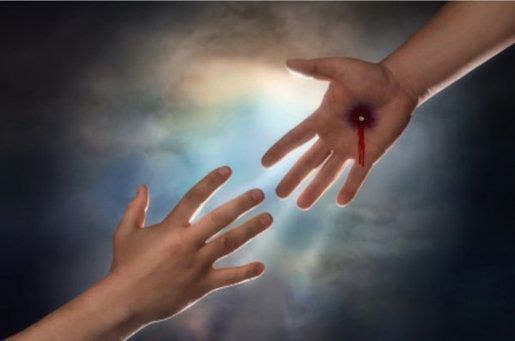|
Throughout the year, the Southern New England Conference of the United Church of Christ reproduces the Daily Lectionary for use by churches. These are the suggested readings for March 14th: Exodus 33:1-6; Psalm 105:1-42; and Romans 4:1-12. I would encourage you to read these short selections as part of your Lenten practice.
I don’t know if you are a fan of The Matrix or not, but there is a philosophical underpinning of the movie that is intriguing from a religious perspective. I believe fully in human free will. I believe that it is an inviolable character of human nature that not even God will suspend because God has decided to create us in His image, and freedom is essential to the nature of God. If human freedom were to be compromised, then human nature would not be worthy of God’s special attention. In The Matrix that human freedom is, however, compromised through the power of an elaborately complicated hoax. People exist in a false reality and only the exceptional few are brave enough to break free of it. Neo is one of those exceptional few, and because of this he is hounded by the enforcers of the deception. These enforcers are personified in Agent Smith. When Agent Smith must enter into the world from the organized sterility of the computer program, he complains about the “smell” of creation. The world is a dirty, obnoxious creation that Agent Smith must endure to perform his duty, but he hates needing to be a part of it. For those of us who have chosen to watch The Matrix, we see ourselves as part of Neo’s world, not Agent Smith’s. We are humans who cherish our existence even if it is the less than pleasant reality that can be artificially generated by the machines. If you could, think about this feeling as you read the Exodus selection. God is so offended by human beings that God tells his chosen people, the people God has selected out of all human creation, that “I will not go up among you [to the Promised Land], or I would consume you on the way.” The holiness of God simply cannot tolerate the reality of human life. God is angered by humans to the point of “I would consume you on the way.” This seems to represent the dichotomy of heaven and earth that is reflected in Agent Smith’s repulsion of needing to enter creation. God is so thoroughly other that our world is noxious to God. And then there is the revelation of Jesus of Nazareth. In Jesus, God enters the world and embraces it – the good and the bad, the holy and even the obscene. Creation is the work of God and in Jesus God asserts its sanctity. We humans are far from perfect. We humans do terrible things to one another. God is shocked by our choice of sin, but rather than Agent Smith’s repulsion of creation, God enters the world in Jesus to claim it again as His own and to offer us a way toward reconciliation. Think back to where our Lenten journey began. Jesus accepted John the Baptist’s baptism for the forgiveness of sin. The sinless Jesus accepted the burden of sin to make us right with God, to show us that we need not be separated from the holy. And at the end of His ministry, Jesus dies with our sins upon His shoulders: “For our sake he made him to be sin who knew no sin, so that in him we might become the righteousness of God.” (2 Cor 5:21) Jesus comes into our world as us. Jesus shares a life, ministry and gospel with us that offers us a better way so that we may become “the righteousness of God.” And Jesus even is willing to die for us, to take on Himself the burden of sin, to experience the separation of sin, to reveal to us that God will condescend to where we are so that we can rise to where God is. The God who was once thought of as revulsed by humans is now in Jesus willing to accept even our sinfulness to prove to us that even fallen humanity can be welcomed back into God’s communion. Lent is a journey of discovery, not only of ourselves, but of the ineffable love of God who endures anything, even the death of Jesus, to prove to us, to proclaim to us, that everyone is cherished by God, that God is invested in the sanctity of His creation. Our Lenten journey is to appreciate such a love rather than to imagine that we can take advantage of it or even just take it for granted: “‘For God so loved the world that He gave His only begotten Son so that everyone who believes in him may not perish but may have eternal life.’” (John 3:16) In Paul’s writing to the Romans today, we learn that God is not moved by our works, we are not going to earn God’s love. God’s love is given as a part of His very nature, a nature revealed perfectly in Jesus, especially in a crucified Jesus who dies for saint and sinner alike because God will not allow anything less than the wholeness and holiness of His creation to succeed – because this is the nature of God. It may have taken the very life of God in the world to convince us of this new revelation, and for this we take our Lenten journey in order to grow closer to such a loving Saviour. If you’d like, here is the link to the Southern New England Conference’s daily reading schedule: www.sneucc.org/lectionary.
0 Comments
Leave a Reply. |
NewsFaith, love and chitchat. Categories
All
Archives
June 2024
Follow
|
|
SERVICE TIMES
Sunday 9:30-10:30am Children Sunday School 9:30-10:30am Nursery care available during worship DONATE Make a single or recurring contribution by clicking here |
FOLLOW
|

 RSS Feed
RSS Feed
